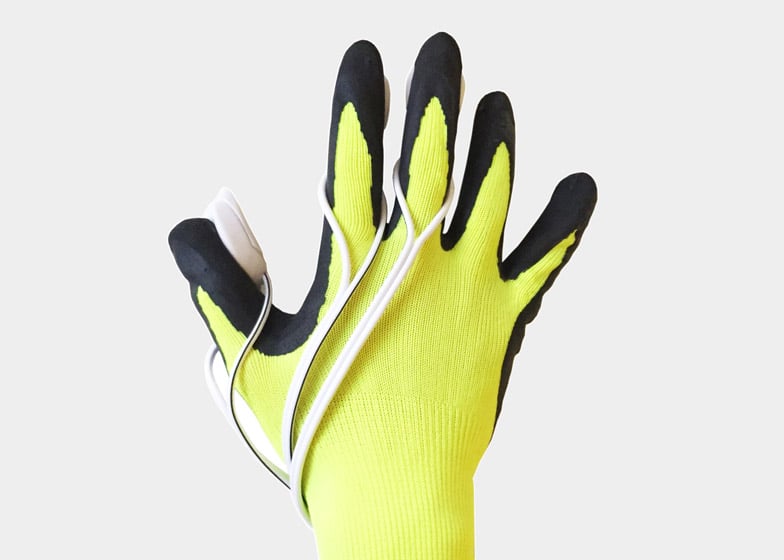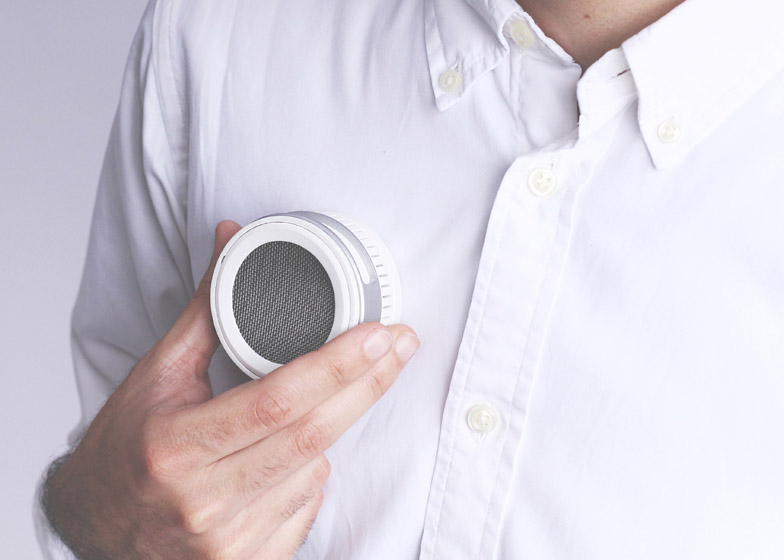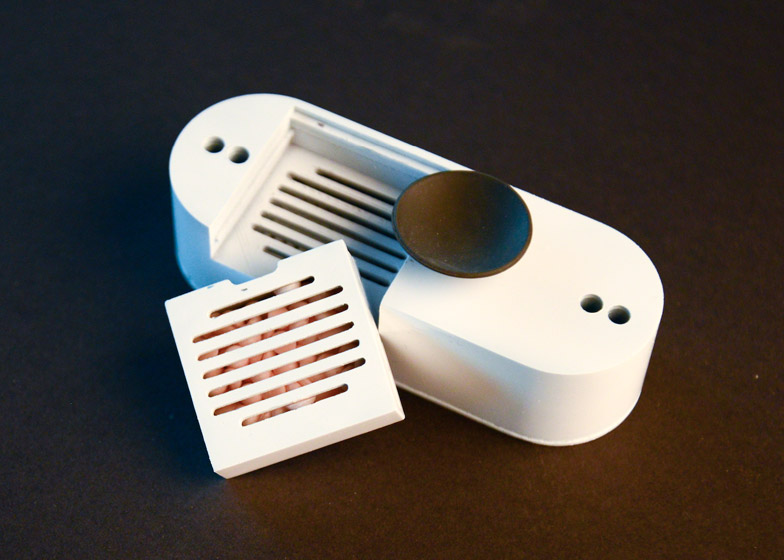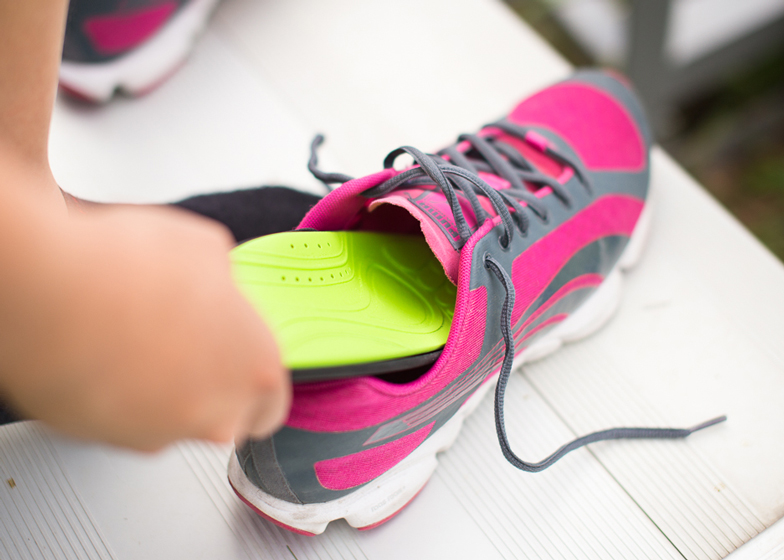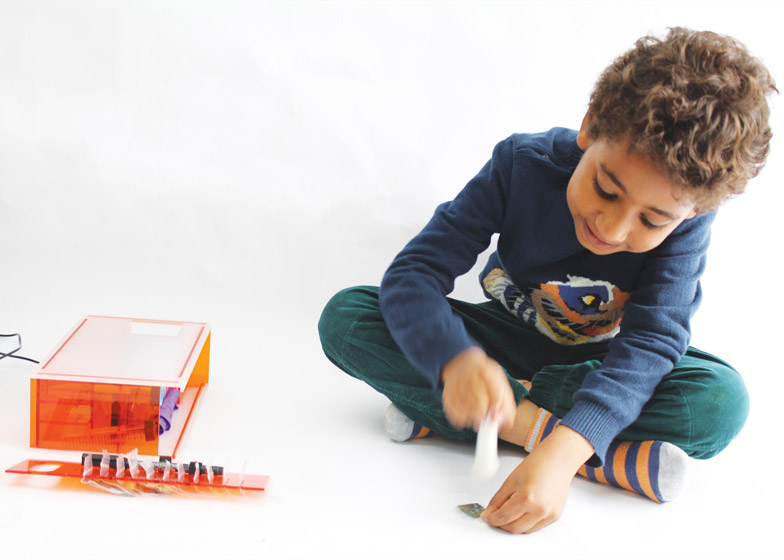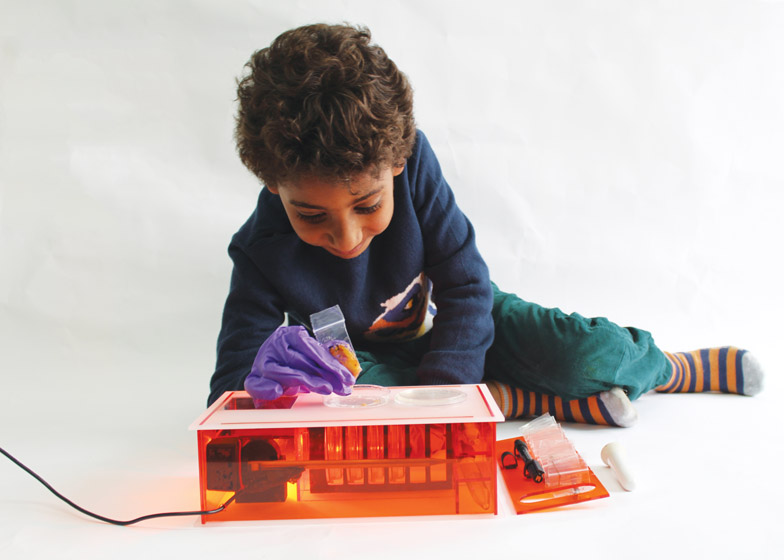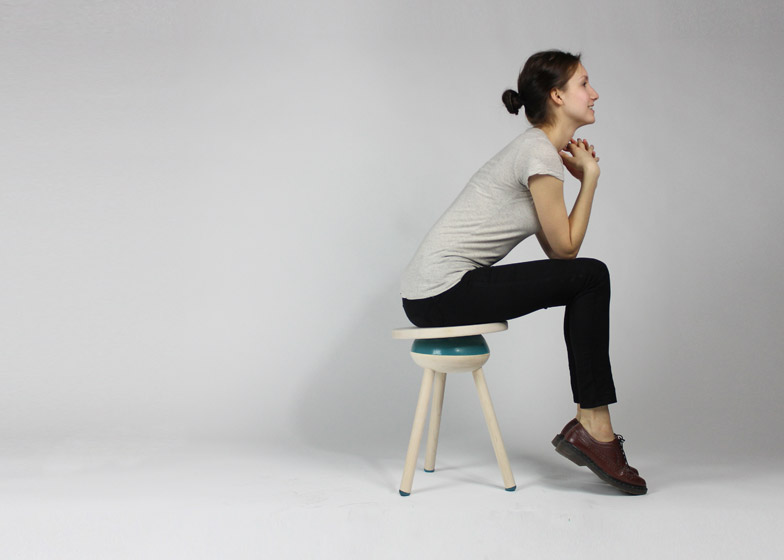The inaugural Dubai Design Week will feature projects from 10 international design schools including London's Royal College of Art and Swiss college ÉCAL for its future-themed Global Grad Show (+ slideshow).
Massachusetts Institute of Technology (MIT) and Eindhoven University of Technology are also among the list of universities presenting work, with 50 different projects on display at the exhibition next month.
Designs will be arranged into seven categories: health, home, work, play, energy, construction and memory, with an overarching theme examining the future of each of these areas.
Projects in the show range from designs that help users manage health conditions and new takes on traditional household items, to ways of constructing materials and buildings, and attitudes towards playtime for both children and adults.
Royal College of Art (RCA) graduate Sheana Yu has designed a personal air purifier, that provides users with a stream of filtered air as well as giving live feedback on surrounding levels of pollution.
Caili ElynAn from Sinagpore's NUS School of Design and Environment has also considered personal devices, with a shoe insert that uses pressure sensitive sensors to communicate with smartphones and give diabetics health feedback.
Ineke Neutelings from Eindhoven University has designed a prosthetic leg that connects to a smartphone app and earpiece, and uses sound to assist wearers with walking.
Vidhi Mehta has also focused on design's implications for the future of health with the Postbiotics kit, that aims to empower citizen scientists to help develop much-needed new antibiotics.
In the construction category, RCA's Morten Grønning Nielsen is showing a power glove that can be used to sculpt hard materials like stone and wood by hand, and MIT's Mediated Matter Group is exhibiting its Silk Pavilion – a dome created by silk fibres woven by a robotic arm.
Meg Czaja from New York's Pratt Institute has designed the Oblio stool, which intentionally wobbles to help fidgety sitters, while Lee Sonju, Kim Hanbit and Juan Montalvan from the Korea Advanced Institute of Science and Technology are showing an Ikea hack that lets children re-assemble a swivel chair into a truck or helicopter.
Fellow KAIST students Kim Dohyeong, Kim Eunjin and Kim Shin have created an alarm clock that wakes users up by releasing a pre-programmed fragrance.
A drone-based sea rescue system has been developed by Jon Kuster, which proposes to fly a self-inflating raft to those that have fallen overboard while co-ordinating with heat-detecting cameras and co-ordination chips onboard.
The projects on display have been curated by designer and writer Brendan McGetrick, who chose projects that went "beyond aesthetics".
"Design exhibitions often fixate on style alone – a lamp or chair, for instance, that looks beautiful (or just unusual) but doesn't provide a fundamentally different experience or benefit from any other lamp or chair," McGetrick said in a statement.
"In Global Grad Show, many of the exhibits are attempting to apply design to open up new possibilities or to meet currently unmet needs and desires," he added.
Dubai Design Week will take place from 26 to 31 October, and has been arranged in partnership with Art Dubai and Dubai Design District (d3) – a new creative quarter currently being built in the city.
"As one of the most vibrant and multicultural cities in the Middle East, Dubai is the ideal location to host such an exhibition," commented d3 managing director Lindsay Miller in a statement.
"This unique platform will provide a level field for emerging designers and creatives in a way that traditional design centres with established institutions and agendas, such as London or New York, simply couldn't."
Phase 1 of Dubai Design District is currently being completed by Foster + Partners, and is expected to host more than 10,000 creatives once complete.
The aim of the new neighbourhood is to nurture the city's emerging local talent, as well as provide a hub for established studios and galleries.

